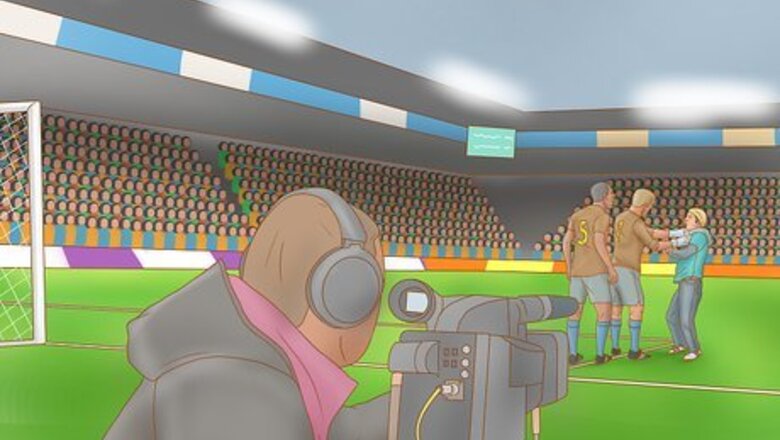
views
Building Your Defense
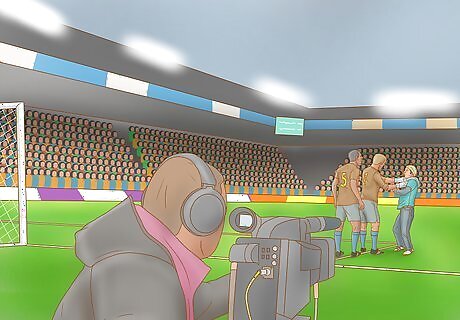
Get video evidence of the game. The key to winning your lawsuit will be evidence. You need proof that you did not attack the fan or that any contact was purely in self-defense. Ideally, the game would have been broadcast over television. If the game was broadcast, then ask the station for a videotape of the game and check to see if the altercation was captured. If the game wasn’t broadcast, you should still try to find out if someone videotaped the game from the stands. Ask people who were at the game if they saw anyone videotaping. Try to get the person’s name.

Find eyewitnesses who support you. In the absence of video evidence, eyewitness testimony is the next best evidence. You can find the names of eyewitnesses in a copy of the police report if one was filed. Have the witnesses write down their memories of the incident and then ask them to sign their statements. Also ask if they would be willing to testify on your behalf if you go to trial. Try to get their contact information (address, phone number, and email).

Write down your own memories. You are also a witness to the incident, so you should write down your own memories. As soon as possible, sit down and write a narrative of what happened. What did you do? What did the fan do or say? Writing down your recollections also gives you something to refer to when your trial starts a year down the road. By then, your memory might be fuzzy.
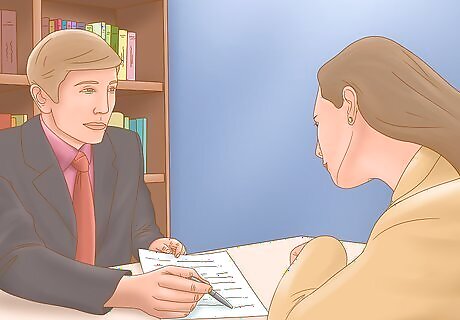
Meet with a lawyer. In order to build the best defense possible, you will need expert help. You should meet with an attorney to discuss your case. Get referrals from other players who may have been sued by fans. Once you have the name of a lawyer, call him or her up and schedule a consultation. At the consultation, you can show the lawyer your evidence. The lawyer will help you understand what defenses are available. The lawyer can also honestly assess whether you should try to settle the lawsuit because the fan has a very strong case. Think about hiring the lawyer. You can meet for a half hour consultation and then never see the attorney again. However, hiring the lawyer could be enormously beneficial. The lawyer can handle all aspects of the case, which may be difficult for you to learn. Discuss different fee options and see if you can afford to hire the lawyer.
Answering the Fan’s Legal Complaint

Read the fan’s complaint. The fan will start the lawsuit by filing a “complaint” with the court. In this document, the fan will give his or her version of the events and also explain any injuries suffered. The fan will also make a demand for monetary compensation. You will receive a copy of the complaint along with a “summons.” You should hold onto both documents and show them to your attorney. The summons will state your deadline for responding to the lawsuit. If you fail to respond in time, then the fan might be able to get a “default judgment” against you, which could be hard to set aside. With a default judgment, the fan basically wins the lawsuit and you never get a chance to defend yourself. The fan could then garnish your wages or put liens on your property.

Identify possible defenses. In your answer to the complaint, you can list your defenses. You should identify any defenses ahead of time. The precise defenses available will depend on the circumstances of your case. However, you can generally raise the following: The fan waited too long to sue. Each state has a deadline for when someone must file a lawsuit after being injured. This deadline is called the “statute of limitations.” The length of time will vary by state, but in many states it is two years after the injury. If the fan waited too long to sue, then you can ask the judge to dismiss the case. The fan is lying. The fan might be lying that you used violence against him or her. In this situation there was no assault or battery. You would then deny all allegations. You were protecting yourself. You are allowed to use reasonable force to protect yourself from a threat. If the fan started attacking you first, then you could argue that your violence was justified by the necessity to protect yourself. You were protecting others. You can also use reasonable force to protect someone else. If the fan was attacking a teammate, then you could pull the fan off your teammate, for example.
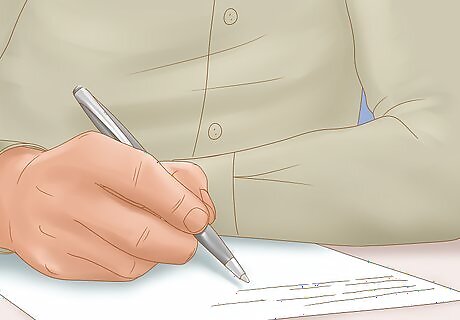
Draft your answer. Your lawyer should draft this document for you. In it, you admit, deny, or claim insufficient knowledge to admit or deny each allegation made by the fan. You can also raise any defenses that you have. If you are representing yourself, then you should check if the court has a printed “fill in the blank” answer form that you can use. If they don’t, then ask if they have a sample you could use as a guide.
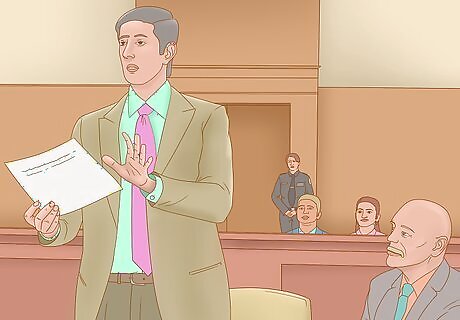
File your answer with the court. Your lawyer will make several copies of the completed answer and file the original with the court. You may have to pay a filing fee. If so, your lawyer will bill you for the fee. Make sure to get a copy of all documents filed in your case. You want to stay engaged in the lawsuit, so ask your lawyer to please give you copies.

Serve the fan with a copy of your answer. Just as the fan gave you notice of the lawsuit, you must provide a copy of your answer when it is filed. If the fan has an attorney, then the attorney gets the copy. Your lawyer should handle the service of process. If you are representing yourself, then ask the court clerk what methods of service are acceptable. Generally, you can hire someone to make hand delivery on the fan. For example, you could pay the sheriff or a private process server to make service. In some courts you can also have someone 18 or older make delivery so long as this person is not a party to the lawsuit. Be sure to have the server complete a “proof of service” form (also known as an “affidavit of service”) and file it with the court. Keep a copy for your records.
Preparing for Trial
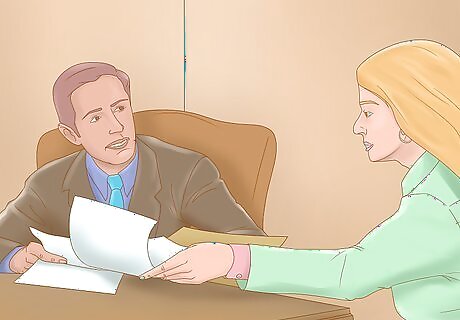
Request documents from the fan. After you file your answer, the lawsuit enters a fact-finding phase, which is called “discovery.” The name describes its purpose: you can request information from other people which might help your case. For example, you can request documents from the fan. You will want copies of all medical records, from every doctor who treated the fan. Your lawyer can then review these records to see if the fan is exaggerating his or her injury. You can also get any communication the fan has made in which he mentions the incident. For example, the fan might have mentioned in an email that he is going to sue you on trumped up charges. If you are sued in small claims court, then there might only be limited discovery. For example, you might be able to get medical records but that’s it.
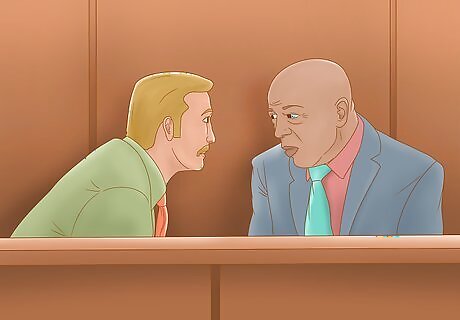
Sit for a deposition. You can also ask people questions in discovery. The questions can be in written form (which are called “Interrogatories”) or the questions can be asked orally, in a “deposition.” A deposition usually takes place in a lawyer’s office and is recorded by a court reporter. To prepare for your deposition, remember the following: Listen closely to the question asked. You want to answer only that question and nothing else. If you don’t understand the question, then ask for clarification. Consult with your attorney if you want. You have a right to speak to your lawyer at any point in the deposition. Always tell the truth. You are testifying under oath. If you lie, then you can commit perjury. Also, your lie will be brought up at trial, which will hurt your chances of convincing the jury that you are telling the truth. Stay calm. Depositions can drag on forever. As a result, people can become cranky or annoyed. Always smile and try to avoid raising your voice or getting rattled. Don’t guess and don’t provide estimates. If you don’t know an answer, simply say, “I really don’t know.”
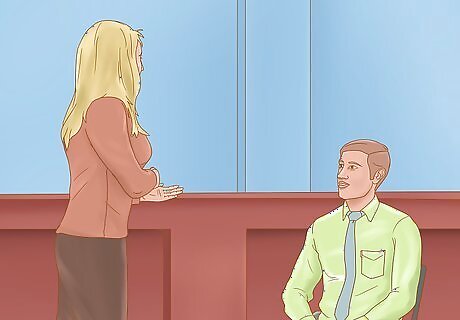
Ask the fan questions during a deposition. You can also ask witnesses questions during a deposition, and this includes the fan. Your lawyer will schedule a deposition. The purpose will be to discover the story the fan will tell at trial. You can also use deposition testimony to trip up the fan later at trial. For example, the fan’s story might change at trial. Your lawyer can then confront the fan with inconsistent statements made during the deposition. In this way, you can diminish the fan’s credibility in front of the jury.
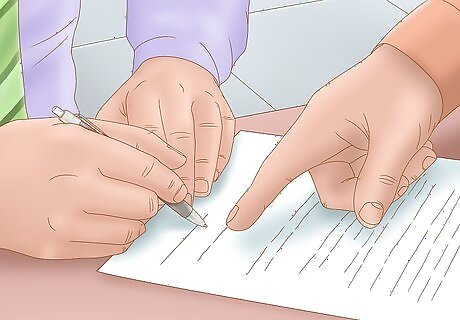
File a motion for summary judgment. Your lawyer might want to file a motion for summary judgment. With this motion, you argue that there are no issues of material fact in dispute. Accordingly, the judge should decide in your favor before trial. This motion will probably be a long-shot. There should be factual issues in dispute—for example, whether or not you touched the fan and whether or not your contact was justified. This type of factual dispute usually means that a summary judgment motion will fail. However, your lawyer might still file one on the off-chance you could win.

Consider settlement. You might be better off settling the lawsuit, even if you aren’t guilty. Settlement negotiations can happen at any time, even before the fan files a lawsuit. The earlier you settle, the less money you would spend defending yourself from the allegations. You should talk with your lawyer whether settlement is right for you. If you have a strong defense, then you might want to hold out for a favorable settlement. However, if your defense is weak, then you might want to give the fan what he or she is asking for. Be sure to sign a settlement agreement if you reach a compromise. Also insist that the fan sign a “full waiver and release.” With this release, the fan will promise not to sue you for the incident, now or in the future. Refuse to settle unless the fan agrees to sign a release.
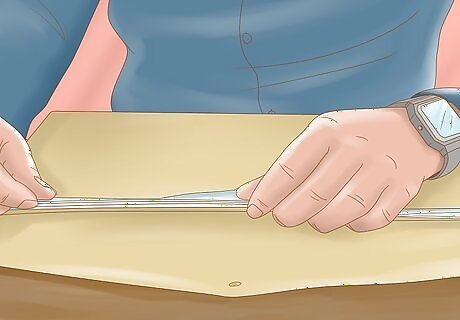
Get your evidence in order. Trial may be unavoidable. Settlement negotiations could have failed. You might have lost your summary judgment motion. All that is left is to get prepared for trial. If you have a lawyer, then he or she will do all of the work preparing for trial. However, if you are representing yourself, then make sure to do the following: Get your witnesses lined up. You will want to call any witness who had a clear view of the incident and who can testify that you didn’t touch the fan, or that you only touched the fan to protect yourself from an attack. Make sure the witness is credible—has a job, is presentable, has no criminal history. Serve your witnesses “subpoenas.” These are legal commands that the witness should show up on the date of the trial. You can typically get them from the court clerk. You will need to serve them on the witnesses in the same manner that you served a copy of your answer on the fan. Also make several copies of any exhibit you want to use. You need to give one to the fan’s attorney and one to the judge as the witness looks at the third copy. Affix exhibit stickers to each document, which you can get from the court clerk or from an office supply store.
Defending Yourself at Trial
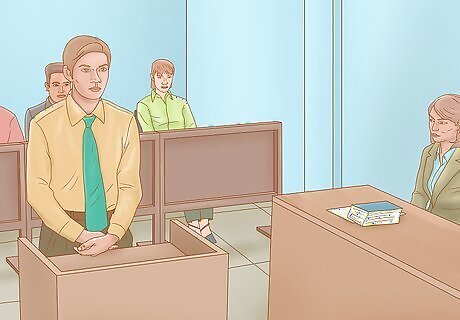
Observe a trial if you have no lawyer. People representing themselves are often nervous about doing so. To gain confidence, you can sit in on a trial. Ask the court clerk if there is a personal injury case you can observe. Courtrooms are generally open to the public. As you watch the trial, pay attention to how the lawyers act. Where do they sit, and when do they stand? Where do they stand to ask witnesses questions? Pay attention to how everyone is dressed and how they act. You will want to present yourself in a similar manner.
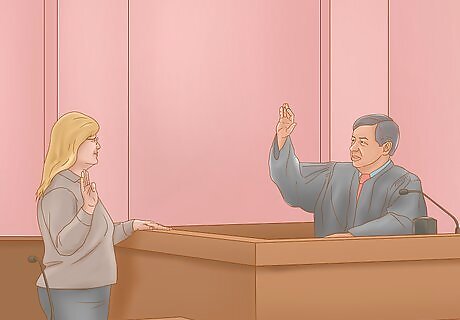
Make your opening statement. The trial begins with opening statements. The fan’s lawyer will go first, and you will go second. Your goal is to give a sneak peek about what evidence you will present. Try to mention evidence in the same order as you will present it during trial. If you are in small claims court, then there might not be any opening statements. Instead, the judge might ask each side to just jump in and describe its case.

Cross-examine the fan’s witnesses. The fan, as the person who brought the lawsuit, will present evidence first. Witnesses will probably testify that they saw you attack the fan. Also the fan will probably testify as well. Your lawyer will have a chance to cross-examine all witnesses. If you are representing yourself, then you should read Question Witnesses when Representing Yourself for tips on how to conduct an effective cross-examination.
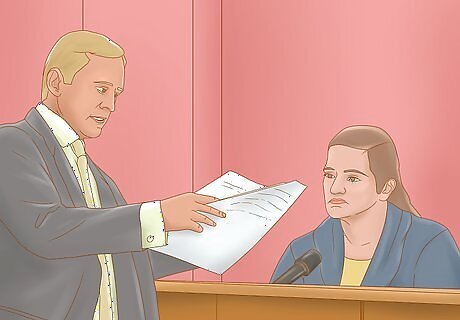
Present your own witnesses. Make sure that you know ahead of time what each person will testify to. You don’t want there to be surprises during your examination. If you don’t have a lawyer, then write out your questions ahead of time and follow the script. Remember not to ask leading questions. A leading question contains its own answer. You can usually answer leading questions with a “Yes” or “No.” For example, asking, “You didn’t see me touch anyone, right?” is a leading question. Instead, ask a series of questions that place the witness at the scene of the incident. For example, you can ask: “Where were you on March 24, 2016?” “Where were you sitting in the stands?” “Were you sitting there at the start of the third quarter?” “Did anything happen at the 10-minute mark of the third quarter?”

Testify on your own behalf. If you have an attorney, he or she should go over what questions you will be asked. If you are representing yourself, then you will probably give your testimony in the form of a speech. The fan’s attorney can then cross-examine you. You should remember the same tips that you used when you gave your deposition. Listen closely to the question and answer only that question. Also never guess, and don’t get rattled.
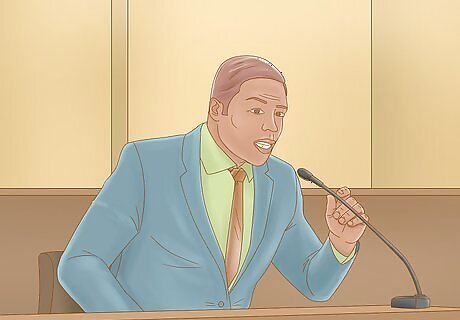
Make your closing argument. Make sure to explain how the evidence shows that you are not responsible for the fan’s injuries. If you need to, use your exhibits and hold them up to the jury as you make your argument. For example, you could argue, “And I want to remind you of the videotape you saw of the game.” You then hold up the videotape. “And what did that tape show? It showed the plaintiff striking at the defendant, not the other way around.”
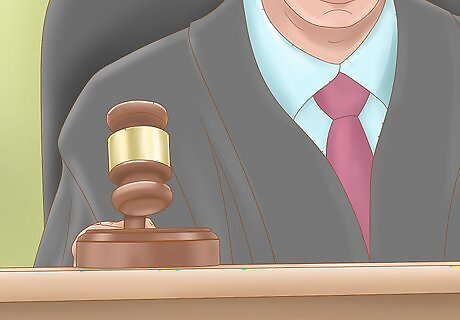
Receive the verdict. At the close of evidence, the judge will read the jury its instructions and let them retire for deliberations. If you are in small claims court, then the judge will probably deliver the verdict from the bench. You might want to appeal. You should talk this option over with your lawyer. If you want to appeal, then you shouldn’t wait. You often get only 30 days or less to file your Notice of Appeal.




















Comments
0 comment